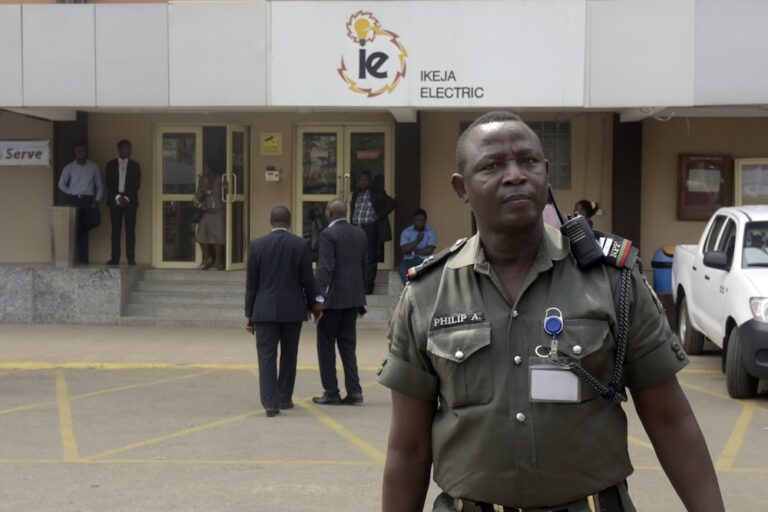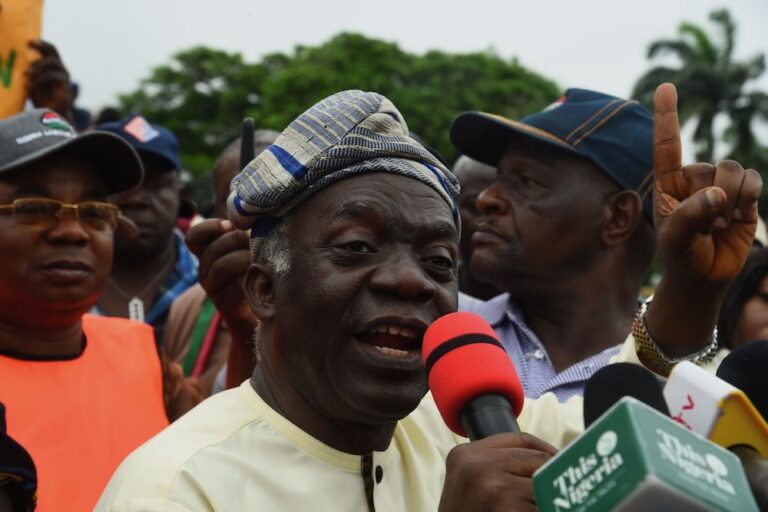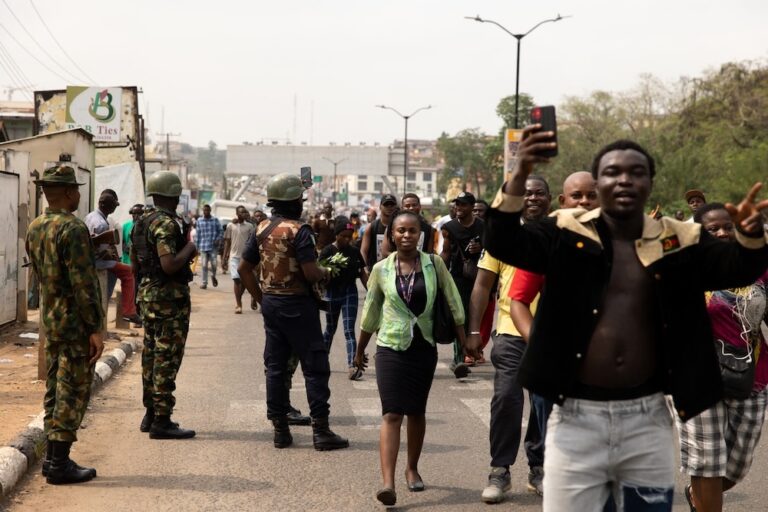(WAJA/IFEX) – The following is a 27 May 1999 WAJA statement on the return to constitutional rule in Nigeria: The West African Journalists Association (WAJA), on the eve of the return to constitutional rule in Nigeria, joins the people of Nigeria in welcoming this long-awaited transition which represents a major watershed in the history of […]
(WAJA/IFEX) – The following is a 27 May 1999 WAJA statement on the return to
constitutional rule in Nigeria:
The West African Journalists Association (WAJA), on the eve of the return to
constitutional rule in Nigeria, joins the people of Nigeria in welcoming
this long-awaited transition which represents a major watershed in the
history of Nigeria.
The transition indeed holds the key to the full development of Nigeria,
undoubtedly a country with enormous resources, whose people have been denied
progress owing to years of military dictatorship that eroded the human
rights of Nigerian citizens to abysmal depths.
It is the hope of WAJA that never again should Nigeria be plunged back into
military dictatorship and that the incoming regime and successive ones of
Nigeria will only pursue and maintain a democratic culture which alone can
guarantee good governance.
WAJA wishes to use this occasion to acknowledge the heroic role of Nigerian
journalists and other human rights groups who in the face of brutal
repression fought relentlessly for the return of democracy to Nigeria.
We recall with sadness the many casualties and sacrifices Nigerian
journalists and other professionals bore in the struggle to dislodge
military dictatorship in the country. As Nigeria returns to democracy, it is
our fervent hope that those days of repression that took the lives of
Nigerian journalists and others and sent so many people into detention and
exile will become a thing of the past.
We call on the new civilian regime headed by General Olusegun Obasanjo to
fully respect the human rights of all Nigerians. The Obasanjo regime should
respect to the core Article 19 of the Universal Declaration of Human Rights
which enjoins all governments to accord their citizens their right to
freedom of expression.
It is encouraging to note that the new 1999 constitution of Nigeria has
provisions that grant the media the responsibility to uphold the
accountability and responsibility of the government to the people of
Nigeria.
But for the press to fulfil its duty, the necessary enabling legal regime
must be created. With as many as 21 anti-media laws still on the statutes, a
sad legacy of the military era, the new government must move fast to repeal
all these draconian laws to show its commitment to democratic rule and by so
doing create a liberal environment for media practice in Nigeria.
WAJA associates itself with the OTA PLATFORM OF ACTION ON MEDIA LAW REFORM
which called for a comprehensive legal reform and the repeal of all
draconian decrees of the military era, especially decrees Nos. 29 of 1993,
48 of 1993 and all other laws that impede freedom of expression.
We equally call for an enactment of the Freedom of Information Act to ensure
free access to official information by the media.
We also call for a public enquiry into the murder of journalists Bagauda
Kaltho, Tunde Oladepo and Bolade Fasasi.
The incoming Obasanjo regime should do well in the view of WAJA to uphold
human rights in Nigeria and quickly undertake policies that will restore the
political and economic dignity of Nigerians lost during the repressive era
of the military.
History will be watching every step that the Obasanjo regime takes and will
only judge it favourably if policies and actions taken by this new regime
advance the frontiers of freedom and economic progress for all Nigerians.
Signed Kabral Blay-Amihere
President
WAJA


